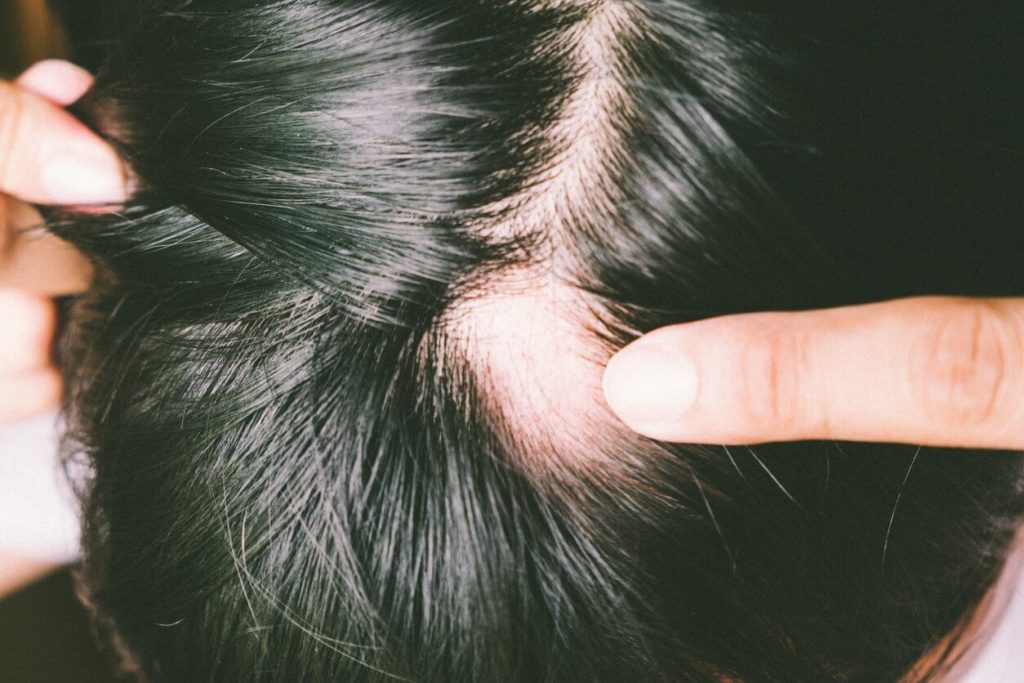Alopecia: how to treat yourself to stop losing hair?
Written by: Loris Vitry (holistic coach)
Validated by: Cathy Maillot (Osteopath)
Caution: If you have any medical questions or concerns, please speak to your doctor. Even if the articles on this site are based on scientific studies, they do not replace professional medical advice, diagnosis or treatment.

The body is a precious treasure for each individual.
No one can accept losing any part of their body.
So when the hair falls out, we are stressed about losing all of it.
Thus, in this article we will present the various methods or solutions to fight or eradicate this problem of hair loss.
What is alopecia and how does it manifest itself?
Alopecia is a medical term used to designate hair loss or hair loss that leaves the skin partially or totally bare.
In other words, alopecia is hair loss in a down to earth way.
Alopecia affects all categories of people.
However, alopecia is more common in men.
It should be noted, however, that men whose family history is affected by cases of alopecia, are more likely to be affected by this pathology.
Alopecia is generally manifested by hair loss.
However, there are possibilities to know in advance if we will be stricken with alopecia.
Thus, the warning signs of alopecia are:
– Excess sebum or the appearance of dandruff;
– Dull hair;
– Itching of the scalp;
– Painful roots.
Alopecia is a pathology with many faces and which has various causes.
What are the types of alopecia?
There is a diverse typology of alopecia.
Indeed, we distinguish:
Baldness or androgenetic alopecia
It is the most common form of alopecia, it mainly affects men.
This type is strongly determined or dominated by heredity.
It is characterized by a gradual receding of the edge of the hair at the top of the forehead.
It doesn’t just manifest on the forehead, it can also develop in the middle of the head.
Baldness affects 1/3 of men aged 30, half of those aged 50 and 80% from 70 years.
In women, baldness is quite rare.
Indeed, it affects 2 to 5% of women aged 30 years.
Baldness also manifests itself differently in female patients.
The latter manifest alopecia by the transformation of their hair.
Cicatricial alopecia
It is caused a permanent lesion of the scalp due to a disease or infection of the skin (lupus, psoriasis, lichen planus).
Ringworm
It is the main cause of alopecia in children.
It is an infection due to fungus on the scalp.
In some cases, there is hair regrowth.
Alopecia areata or alopecia in plaques
It is recognized by the complete loss of hair or body hair on small areas of the skin.
There are cases of hair regrowth but a relapse is always possible regardless of the weather (a month or a few years later)
Telogen effluvium
It is a sudden and temporary loss of hair, following a physical or emotional shock, an operation (chemotherapy and radiotherapy) or during a significant weight loss.
30% of the hair enters the resting phase prematurely, then falls out.
Congenital alopecia
It is very rare and is due to the absence of a hairline.
How to prevent alopecia?
There are several ways to prevent alopecia.
In fact, the measures concern hygiene, food and the mind.
Regarding hygiene measures, it is necessary:
– Have good hair hygiene.
This measure helps to prevent ringworm, which most often occurs through poor hair hygiene.
– Avoid sharing your utensils or hair accessories (combs, hairbrushes, etc.).
– Do not abuse chemicals.
– Avoid excessive pulling of the hair.
Regarding diet measures, foods rich in magnesium, iron, potassium or zinc should be consumed.
These trace elements are very important for the health of your hair.
The measures relating to the maintenance of our morale recommend guarding against stress.
Indeed, stress is one of the causes of alopecia.
It causes or promotes the secretion of androgens.
These androgens, in excess, promote baldness.
When one fails to prevent alopecia, it would be adequate to opt for treatment measures.
How to fight against alopecia?
There are several methods of combating alopecia, among which:
Medicines
– Taking anti-fungicides for ringworm cases.
– Taking Spironolactone.
This medication is intended for women with androgenetic alopecia whose administration of minoxidil has not been effective.
This drug stops or blocks hormones and causes hair loss.
– Minoxidil and finasteride are brakes on hair loss and at the same time stimulate hair regrowth.
However, it should be noted that this hair regrowth does not reproduce the initial hair.
They are taken twice a day on the infected parts.
– The contraceptive pill.
Indeed, it has been proven that the pill is one of the solutions to alopecia because it also stops the hormones responsible for hair loss.
There is also a surgical solution, especially when the medicinal ways are unsatisfactory.
Surgical means
The surgical route involves taking hair from an area with more hair to supply an area with less hair.
It can also consist of a replacement of the hair by the method of micrografting.
The micro transplant consists in removing and transplanting one by one the hair plus some skin tissue.
It is important to note that cases of temporary alopecia, that is to say due to stress, pregnancy, do not have a planned treatment.
It is rather advisable in these cases to carry out camouflages, to wear wigs or scarves or to completely shave the head.
Ultimately, alopecia or hair loss is a cause of stress for people who are affected.
Especially for women, when we know that the hair is a plus in their beauty and in their desire to seduce.
To this end, it would be wise to prevent this pathology by respecting certain precautions.
In cases where you have not been able to prevent this anomaly, one should opt for one of the treatment methods.
However, when the alopecia is of hereditary origin, it is better to cover up or completely shave the head.
Continue reading:
Anticipation stress: how to stop making scenarios?

